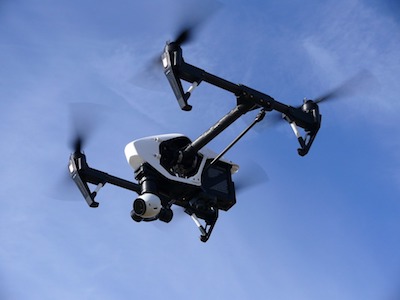Washington has warned that Chinese-made drones could be giving spy agencies in Beijing “unfettered access” to stolen data, according to a report in American media.
The Department of Homeland Security sent out an alert on Monday flagging drones built in China as a “potential risk to an organization’s information”, CNN reported.
The US government has “strong concerns about any technology product that takes American data into the territory of an authoritarian state that permits its intelligence services to have unfettered access to that data or otherwise abuses that access,” wrote CNN, quoting the DHS alert.
The warning comes as China’s tech sector attracts unprecedented scrutiny amid the bruising China-US trade war.
Washington has cranked up the heat on China’s Huawei by effectively banning American companies from selling or transferring US technology to the telecoms giant, though the US Commerce Department has granted the firm a 90-day reprieve.
US intelligence believes Huawei is backed by the Chinese military and that its equipment could provide Beijing’s spy agencies with a backdoor into the communications networks of other countries.
Washington has also pushed its closest allies to reject Huawei technology.
The DHS report did not name any specific Chinese manufacturers, but the southern China-based DJI produces about 70 percent of the world’s commercial drones.
The Pentagon has banned the military from using DJI drones for security reasons since 2017.
“Safety is at the core of everything we do, and the security of our technology has been independently verified by the US government and leading US businesses,” DJI said in a statement.
“For government and critical infrastructure customers that require additional assurances, we provide drones that do not transfer data to DJI or via the internet,” the company added.














